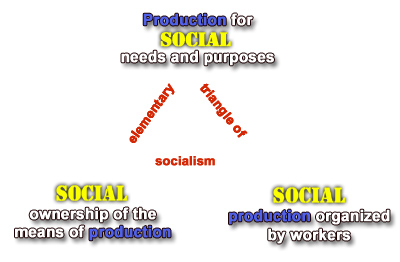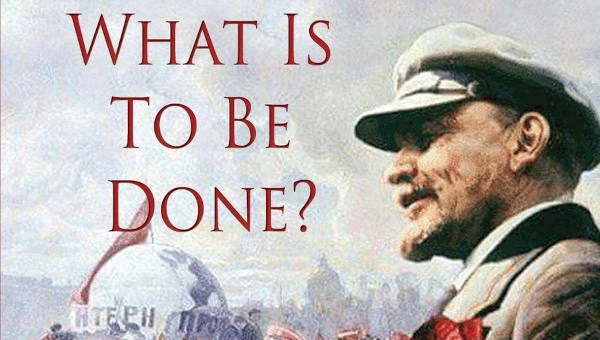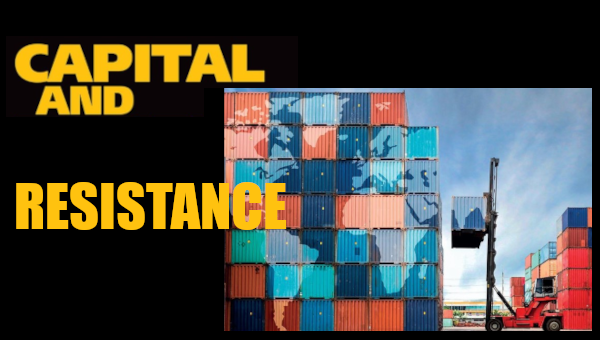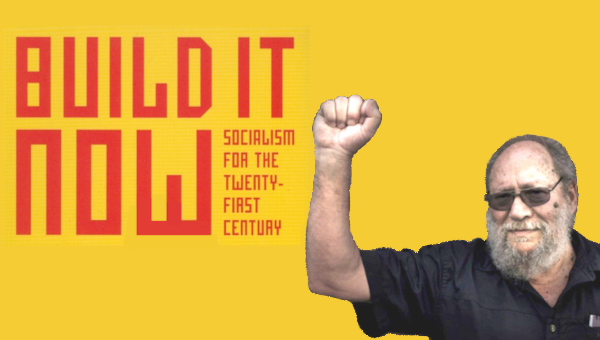Socialism: the Goal, the Paths and the Compass
[Presentation of “El Socialismo no Cae del Cielo: Un Neuvo Comienzo” at the 2010 Havana Book Fair, 18 February 2010.]
There’s an old saying that if you don’t know where you want to go, any road will take you there. As I’ve said on many occasions, this saying is mistaken. If you don’t know where you want to go, no road will take you there. In other words, you need an understanding of the goal. You need a vision for the future.
Marx had a very clear vision. It was a vision of a society which would permit the full development of human beings – a society which allowed everyone to develop their potential. And, that would occur not because of gifts from above but, rather, as a result of the activity of human beings. This was his concept of revolutionary practice – the simultaneous changing of circumstances and human activity or self change. Human development and practice – this “key link” in Marx reminds us that there are always two products as the result of our activity, the change in circumstances and the change in people themselves. It reminds us that what Marx called rich human beings, socialist human beings, produce themselves only through their own activity.
The Goal

The Bolivarian Constitution of Venezuela incorporates this concept. It stresses that the goal of society must be the full development of every human being and that participation and protagonism is “the necessary way of achieving the involvement to ensure their complete development, both individual and collective.” In 2007, President Chavez of Venezuela reinforced this vision by introducing what he called “the elementary triangle of socialism.” Social ownership of the means of production, social production organized by workers and production for social needs and purposes make up this triangle.
Firstly, social ownership of the means of production is the way to ensure that our communal, social productivity is directed to the free development of all rather than used to satisfy the private goals of capitalists, groups of producers, or state bureaucrats. Secondly, social production organized by workers permits workers to develop their capacities by combining thinking and doing in the workplace and, thus, to produce not only things but also themselves as self-conscious collective producers. Thirdly, satisfaction of social needs and purposes is the necessary goal of productive activity in the new society because it substitutes for the focus upon self-interest and selfishness an orientation to the needs of others and relations based upon solidarity.
The Paths
This is the vision of the society we want to build. This is where we want to go. And if we don’t know that, no road will take us there. However, knowing where you want to go is not enough. It’s not true that if you do know where you want to go, any road will take you there. Isn’t there a relationship between the goal, and the road you take to get there? Are these independent of each other? For example, can you get to the goal by going in the opposite direction? Do you build social ownership by relying upon capitalist ownership of the means of production and the capitalist monopoly of our social heritage and of the products of our labour? Do you build a society of associated producers and social production by preventing decision-making by workers and retaining the gap between thinking and doing? Do you build a society based upon solidarity, where production is for social needs, by stressing selfishness? In other words, do you go forward by going backwards?
Maybe. Maybe sometimes it is necessary. Socialism does not fall from the sky. It is necessarily rooted in particular societies. We all start from different places – in our development, in our histories. Therefore, there cannot be one single path. All paths will be different. Some will be longer than others. Some will be relatively straight, while others will require switchbacks because of the obstacles along the road. As we have learned, the biggest mistake is thinking that there is one road and one model.
The Compass
But there is a problem. When you are not going directly toward the goal, how do you avoid getting lost? How you avoid the problem of the growth of capital and capitalist interests, the alienation of workers in the process of production and thus an emphasis upon possessing things and consumerism, the growth of self-interest at the expense of solidarity? Some would say that there is no problem as long as we have a compass, as long as we have a directional finder. And that the party is that compass; the party can point in the direction of the goal when obstacles have temporarily forced you to go in the opposite direction.
I agree with that in principle. But I also believe that we need to learn from historical experience that the party is not itself immune, that it does not stand outside society and thus does not always point to the true North. This was certainly the case, for example, in Hungary, Yugoslavia and China. And, not only there. I have just returned from an intense month in Vietnam. There is no question in my mind that under the conditions facing Vietnam in the 1980s, it was essential for them to make a significant change in the path they were on.
The Example of Vietnam
By developing an economy which they describe as a market economy with a socialist orientation, they have succeeded in lifting their people from significant poverty. Whereas previously people were facing starvation, now Vietnam exports food. This is a very important achievement. They have also begun a process of industrialization.
However, there are serious problems. Young people are overwhelmingly oriented toward capitalism. They say openly that Vietnam needs more foreign investment, and they credit that foreign investment with ending poverty. They want capitalism, and they look upon Marxism as having no relevance to their lives. I stress this point because the students we met were not selected randomly. They came largely from the young communists.
And the dominant views increasingly are in fact no different from those in other countries in Southeast Asia: Thailand, Malaysia, and other nearby countries relying upon foreign investment and export oriented industrialization are the basis of constant comparison in Vietnam. In other words, capitalism is winning in Vietnam. There is growing inequality, there is the emergence of millionaires (not as many as in China so far) and there is a significant process of privatization of state-owned industry (which is called equitisation).
And then there is the party, “the socialist orientation.” It is my sense that a growing portion of the party is looking to Sweden and social democracy as the appropriate model. (In fact, this was openly advocated at the conference I attended at the Ho Chi Minh National Political Academy, the Party school.) In other words, an emerging goal is not the socialist vision but, rather, capitalism plus social policies which reduce inequality – a capitalist welfare state.
There is an infection in Vietnam, and the party is not immune to that infection. I suspect that the next Party Congress will involve a struggle over this direction. Some party leaders are very worried about these tendencies. Certainly, the direction of change in the party in recent congresses has been to strengthen capitalist tendencies – for example, they have removed the prohibition on membership in the party by capitalists.
Something has been missing in Vietnam. Missing so far has been a sufficient emphasis upon that participation and protagonism that is “the necessary way” to ensure the complete development of human beings, “both individually and collectively.” While there has been some focus upon grassroots democracy (for example, in Ho Chi Minh City), there has been very little decision-making by workers in workplaces (outside of annual congresses in state-owned industry), and there has been little emphasis upon conscious production for social needs. And, the results are predictable. In the absence of social production organized by workers and production for social needs, the third side of the socialist triangle, social ownership, is withering away. And, increasingly, the human product is people who embrace the logic of capital.
I think that Vietnam reinforces the lesson that every step to the market must be accompanied by two steps in the direction of building a socialist society: building worker decision-making in workplaces and building institutions based upon solidarity. If we recognize that people produce themselves through their activity, then their activity should unleash their potential rather than be left to an orientation to the market and self-interest. This is what I was stressing in Vietnam – that the party needs to create the conditions in which people can develop their capacities as protagonists within their workplaces and their communities, institutions such as the communal councils and workers councils being developed in Venezuela.
I suggest that through such a process of producing rich human beings with confidence and dignity, both the people and the party will be inoculated against the infection that can prevent us from reaching the socialist goal. That won’t be achieved, however, by a one-sided focus upon developing productive forces. In short, we should never forget the essential insight of Che Guevara – the necessity simultaneously to build productive forces and socialist human beings. •
MRZine.org.





